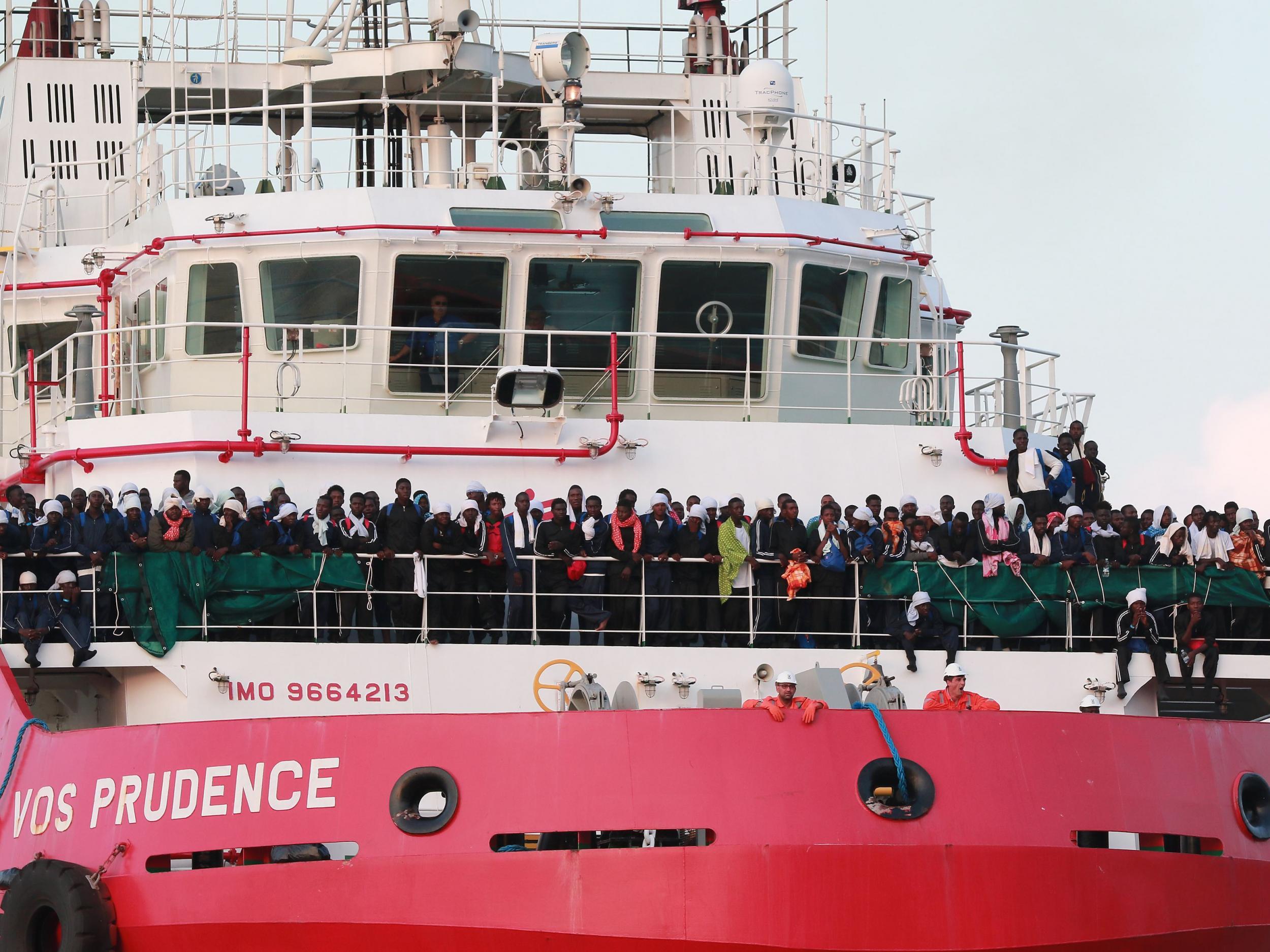The UK must step up to its responsibilities in helping to tackle the refugee crisis in the Mediterranean
The Independent makes no apology for continuing to report the terrible drownings on Europe's southern coasts and our demand for more effective action to avoid them

Your support helps us to tell the story
From reproductive rights to climate change to Big Tech, The Independent is on the ground when the story is developing. Whether it's investigating the financials of Elon Musk's pro-Trump PAC or producing our latest documentary, 'The A Word', which shines a light on the American women fighting for reproductive rights, we know how important it is to parse out the facts from the messaging.
At such a critical moment in US history, we need reporters on the ground. Your donation allows us to keep sending journalists to speak to both sides of the story.
The Independent is trusted by Americans across the entire political spectrum. And unlike many other quality news outlets, we choose not to lock Americans out of our reporting and analysis with paywalls. We believe quality journalism should be available to everyone, paid for by those who can afford it.
Your support makes all the difference.We report today the damning words of Axel Grafmanns of the German charity Sea-Watch: “The EU is wilfully letting people drown in the Mediterranean by refusing to create a legal means of safe passage and failing to even provide adequate resources for maritime rescue.”
So far this year, 2,400 men, women and children have lost their lives in the central Mediterranean, including 13 people found dead at the bottom of an overcrowded dinghy this week.
This ought to be intolerable, and yet the governments of Europe tolerate it, because they appear to lack the political will to deal with it. Mr Grafmanns was speaking about a disagreement over new rules to be presented by the Italian government on Monday that charities say will restrict their capacity to rescue refugees during the peak crossing season.
But this is only the latest instance of a policy of reaction, containment and buck-passing that characterises the approach of all European Union nations including the UK. Mr Grafmanns makes explicit what many suspect, that the EU believes that, if the rescue effort in the Mediterranean is too effective, it would encourage even more people to attempt the crossing.
Of course, there is an element of truth in this, but nothing could justify a policy of allowing people to drown to discourage the others. The death toll in the central Mediterranean ought, instead, to act as a spur to a bigger and more effective effort at all levels to deal with the refugee crisis.
That ought to mean a policy focused on aid and education at source, to try to discourage people in Nigeria and other sub-Saharan African nations from heading towards Libya in the first place. Then there is our collective responsibility to the people of Libya themselves: having helped turn Libya into a failed state by the Nato intervention in 2011, we ought to do more to help fix it.
The UK’s assistance to the Libyan coastguard must be part of this, but so far it has not done enough to stop human rights abuses, as a House of Lords report found this month.
Ultimately, the objective of policy ought to be something similar to the deal that the EU has with Turkey: in effect a large amount of money for Turkey to deal with Syrian refugees close to source. It may seem crude and even cynical, but it is better than a policy that countenances thousands of people drowning each year.
The refugee crisis on Europe’s southern borders is one of the great humanitarian challenges of the age, and The Independent believes that the UK shares a moral responsibility to help solve it. Whether we are a member of the EU or not, we are members of the human race and part of the wider community of nations. We cannot be part of “wilfully letting people drown”.
Join our commenting forum
Join thought-provoking conversations, follow other Independent readers and see their replies
Comments